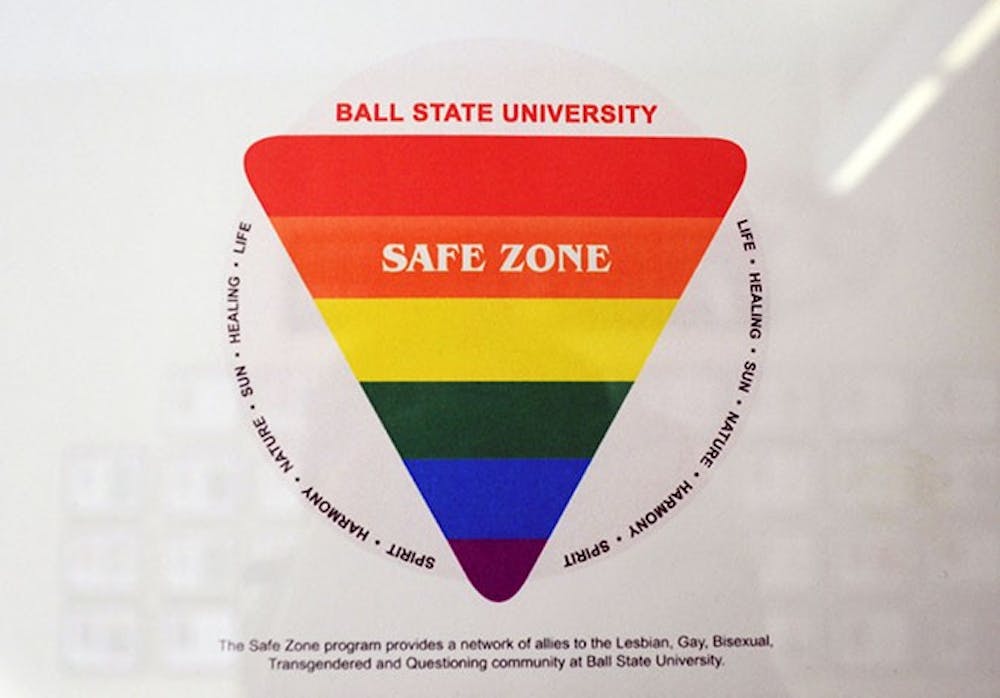"To put it simply, I feel like a girl trapped in a boy’s body, and I’ve felt that way ever since I was four."
Leelah Alcorn, a 17 year-old transgender teen, committed suicide in December 2014 – but not before leaving this note behind. In it, she explained how her school and peers were accepting of her, but her parents were not. She wrote in her note that despite seeing therapists, it did not help her overcome her depression.
“The only way I will rest in peace is if one day transgender people aren’t treated the way I was,” Alcorn wrote. “They [need to be] treated like humans, with valid feelings and human rights.”
With Alcorn’s suicide, transgender rights still remain controversial today. For transgender students at Ball State, there are places across campus that welcome members of the community and guarantee a safe place that is free from discrimination and hate.The Safezone program provides a network of allies to the Lesbian, Gay, Bisexual, Transgendered and Questioning community at Ball State University.
Safezone offers classes for people who want to know more or who want to be an ally of the LBGTQA community. The organization focuses on promoting the safety of two groups in particular: the gay community and the transgender community. The classes are free and members who complete their training, receive a sticker of the Safezone symbol, which represents a safe place for LBGTQA members.
The goal of the group is to educate and encourage students and staff members of Ball State to have a better understanding of the LBGTQA community and to have a safe and open environment for LBGTQA students. Kyle Kittleson, head coordinator of Safezone and a psychologist at the BSU Counseling Center, encourages students to become allies of the community.
“I want to share how to be allies with them,” said Kittleson. “I see how often society is so cruel to people who don’t fit in to what we consider “gender norms.””
By committing suicide, Alcorn wanted her death to have an impact on the transgender community – and it did. After her death, members of the transgender community have come together through social media to speak against issues in the community, such as conversion therapy.
Megan Mullen, a junior majoring in interpersonal communications, first heard about Safezone from friends. She recently became an official ally in January for both gay and transgender communities. Even in Muncie, Mullen has seen the impact that Alcorn’s suicide has had on the community.Intermedia Art professor Kristen Reeves stands by her promise to offer a safe place for any student in crisis to visit.
“I think Leelah’s death brought the issue to the spotlight, but we’ve been dealing with transgender discrimination for quite some time,” she said. “I think it makes it a very relevant issue and that makes people want to learn about it. It has allowed the advocates to bring the issue up again, which is just as important.”
One advocate is Laverne Cox, who plays Sophia from the Netflix series, “Orange is the New Black,” and is a transgender woman herself. She has spent her time working for transgender rights by touring around the country as a representative of the transgender community and talks about her and the community’s struggles. Cox spoke at Emens Auditorium Monday Feb. 23.
Causes for transgender suicides are often linked to discrimination, including harassment, verbally or physically, rejection from friends and family, and possibly denied transformation procedures or hormone medication. In 33 states, it is still legal to discriminate against members of the transgender community for employment and are even denied living in certain neighborhoods. Indiana is one of those states.
To read the rest and check out the infographic, head over to BallBearingsMag.com Also, follow us on Twitter @ballbearings





